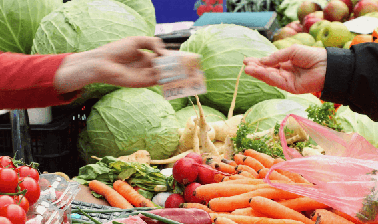- Level Awareness
- Ratings
- المدة 18 hours
- الطبع بواسطة University of Adelaide
- Total students 3,941 enrolled
-
Offered by

عن
Agribusiness is at the core of most economies around the world. The business of feeding peopleremains both complex and extremely important. According to the World Bank, food and agribusiness is a US $5 trillion industry that represents 10 percent of global consumer spending.
In a global food system impacted by growing populations, economic growth, globalization, climate challenges, disruptive technologies, and evolving consumer demands, we must find smarter ways to produce food and to operate food businesses.
Guided bythe team at The Centre for Global Food and Resources, this course will introduce the concepts at the heart of agribusiness; including value chain thinking, the dynamics of markets, and the changing nature of consumer behavior.
You will learn what it is that sets agribusiness apart from other business sectors and the difference between supply chain and value chain thinking. You will gain an understanding of food markets and the distinctive factors that influence them. There will be a focus on the role that consumers play in the value chain - why they make the food choices they do and what changing food demand means for agribusiness. This course will showcase Australian agribusinesses, providing genuine insights into the concepts discussed.
In an increasingly complex sector, this course will help you think differently about the challenges and the opportunities that lie ahead for agribusiness.
What you will learn
- How to recognize the characteristics of Global Food Systems
- The multiple variables impacting Global Food Systems
- How to identify value chain thinking and how it differs from supply chain thinking
- The characteristics of agri-food markets, what influences their supply and demand, and what sets them apart from other markets
- The roleplayed by external factors such as population and income growth, globalization, climate change, technology, and international tradein global food systems, agribusiness and value chains
- How to recognize the role the consumer plays in the food system, markets, and value chains
Skills you learn
Syllabus
Week 1: Global food systems and value chains
In this section, you'll learn how to recognise the characteristics of global food systems;identify the variables impacting global food systems;identify value chain thinking and how it differs from supply chain thinking;identify the role that external factors (for example, population and income growth, globalisation, climate change, technology and international trade) play on global food systems, agribusiness and value chains; andidentify the actors in, and characteristics of, value chains, demonstrated with the building of a value chain model.
Week 2: Agribusiness market dynamics
In this section of the course, you'll learn how torecognise the characteristics of agri-food markets, what influences their supply and demand, and what sets them apart from other markets;identify the role that external factors, such as population and income growth, globalisation, climate change, technology and international trade, play on agri-food markets;interpret the key elements of supply and demand; andrecognise the basic characteristics of supply and demand curves.
Week 3: The role of the consumer
In this section of the course, you'll learn how torecognise the role the consumer plays in the food system, markets and value chains;recognise the consumer characteristics, trends and behaviours that influence value chains; andrecognise some of the techniques used in market and consumer research to better understand consumer behaviour.
Week 4: Your next steps
In this section you will gain additional insights into how you can apply your new skills and knowledge in the agribusiness sector, and what your possible next steps might be if you wish to further your study in this area.
Course end: December 31, 2025 at 00:00 UTC.
Auto Summary
Dive into the intricacies of agribusiness with this enlightening course from The Centre for Global Food and Resources. Focused on value chains, market dynamics, and consumer behavior within global food systems, this 18-hour course offers valuable insights, especially for those in business and management. Ideal for professionals seeking to understand the unique challenges and opportunities in agribusiness, the course showcases real-world examples from Australian enterprises. Subscriptions are available through edX, aimed at raising awareness and fostering smarter food production and business operations.

Professor Wendy Umberger

Elizabeth Gunner

Craig Johns

Dr. Alexandra Peralta


